📍 You attend a training. You take notes. You feel inspired. Then… nothing changes.
Sound familiar? This isn’t just a personal struggle—it’s a well-documented problem. Traditional training doesn’t work. Not because the content is bad, but because the system itself is flawed.
For decades, businesses have relied on workshops, courses, and training programs to upskill their teams. But the results are often disappointing. Most knowledge fades within days, and very little of it ever translates into real business impact.
Something needs to change. And that’s where Transformative Learning comes in.
🚫 The Hidden Flaws of Traditional Training
1️⃣ Knowing ≠ Doing
Traditional training is built to transfer knowledge, but knowledge alone doesn’t drive action.
Most training programs provide frameworks, slides, and theories—but when people return to their jobs, they struggle to apply what they’ve learned.
💡 Example: A marketing training teaches new strategies, but without structured implementation, campaigns stay the same. A leadership workshop builds awareness, but under pressure, old habits take over.
2️⃣ Training is Detached from Real-World Problems
Most courses teach in isolation—far from the daily challenges people actually face. By the time participants try to use the content, it no longer fits their exact situation.
💡 Example: KPI training often teaches metric categories, but doesn’t show how to find the right KPIs for a specific business process. Sales training covers persuasion techniques, but doesn’t help a team design their own sales funnel.
Real learning needs to be embedded in real work.
3️⃣ One-Size-Fits-All Doesn’t Work
To scale, most training is built for broad appeal. But broad content often means generic advice that lacks the nuance needed for real execution.
💡 Example: A finance training that applies to both startups and corporations often fails to serve either well—because the challenges are completely different.
Real learning is contextual. It must be applied, not just absorbed.
4️⃣ There’s No Built-in Accountability
Training often ends when the session ends. There’s no follow-up, no structure for application, and no clear path for turning insights into execution.
Without a system to ensure action, the results are predictable: knowledge fades, and behavior stays the same.
🚨 Result? People walk away feeling smarter, but nothing changes.
✅ The Shift to Transformative Learning
What if learning wasn’t about passive consumption, but about real-time transformation?
What if the goal wasn’t just to understand, but to implement—immediately?
That’s the core of Transformative Learning:
💡 A system designed for real-world execution, not just knowledge transfer.
🔹 The 3 Principles of Transformative Learning
✅ 1️⃣ Learn by Doing, Not Just Watching
People don’t retain knowledge through lectures alone. True learning happens through experience.
💡 Example: Instead of sitting through a KPI seminar, a team works together to build their KPI framework in real time, applying concepts as they go.
✅ 2️⃣ Structured Execution Beats Endless Information
Instead of passively consuming content, Transformative Learning is built on structured systems that guide execution step by step.
💡 Example: A LinkedIn strategy isn’t just taught—it’s built in stages, implemented between learning sessions, and refined with real feedback.
✅ 3️⃣ Real Experts, Not Just Instructors
Learning is most powerful when guided by those who have done it themselves—not just those who teach theory.
💡 Example: In a high-performing leadership program, participants work directly with executives who have scaled businesses themselves, rather than lecturers who specialize in academic frameworks.
🔥 The Future of Learning is Execution
🚫 Forget passive training.
🚫 Forget knowledge that doesn’t translate into action.
🚫 Forget learning that doesn’t change the way you work.
The real question isn’t “How much do you know?”
It’s “How much are you actually using?”
That’s the shift Transformative Learning creates.
Because knowledge only has value when it drives action. 🚀
#TransformativeLearning #ExecutionMatters #BeyondTraining #RealImpact

